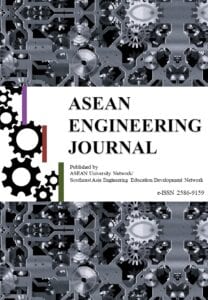EFFECT OF VISCOSITY MODIFYING AGENTS ON DEWATERING UNDER PRESSURE AND THE PERFORMANCES OF MORTAR AND CONCRETE
DOI:
https://doi.org/10.11113/aej.v7.15491Abstract
This study emphasizes the effect of viscosity modifying agents (VMAs) on bleeding and dewatering of fresh mortars under high pressure. A detailed experimental dewatering device was designed and the analysis was carried out in order to evaluate the influence of two types of VMA on dewatering of freshly mixed mortars under high pressure. Additionally, the influence of the VMAs on mortar flow and air content of concrete was investigated. Two different types of VMA, which are a surfactant type and a starch ether type with various dosages were used in the tested mortar and concrete sample having the same water to binder ratio. Experimental results showed that by using dosages of surfactant type VMA equal to or higher than 3%, the pressurized dewatering of the mortars was significantly reduced. The use of starch in mortar mixtures was ineffective to reduce dewatering of mortars under high pressure. At same water to binder ratio, the addition of surfactant type VMA slightly increased the mortar flow and the v-funnel flow time due to enhancement of the air content in mixtures whereas starch ether decreased the mortar flow and increased the v-funnel time. The results of this study indicate that the surfactant type VMA is useful to control the dewatering of concrete under high pressure.
















